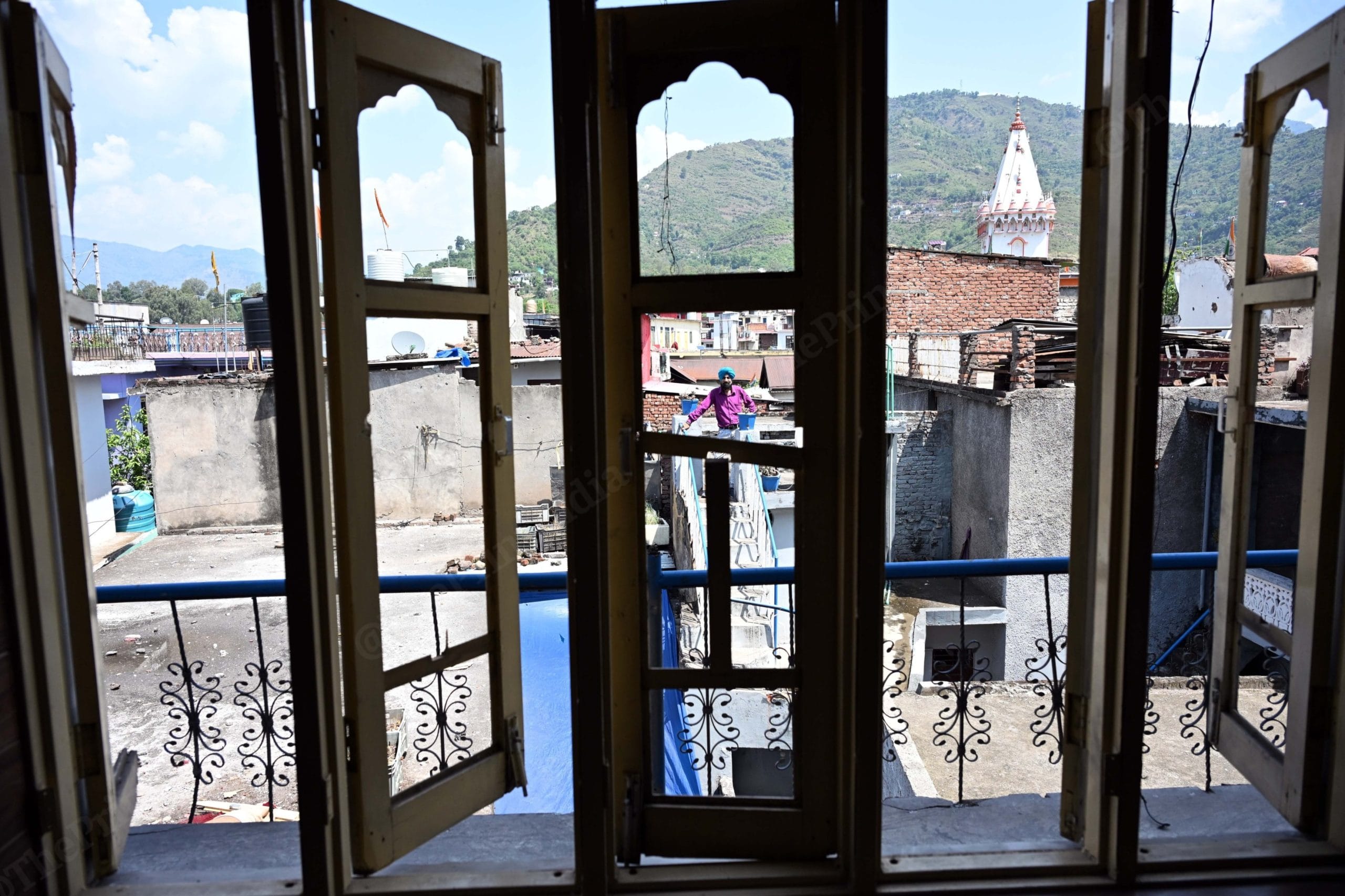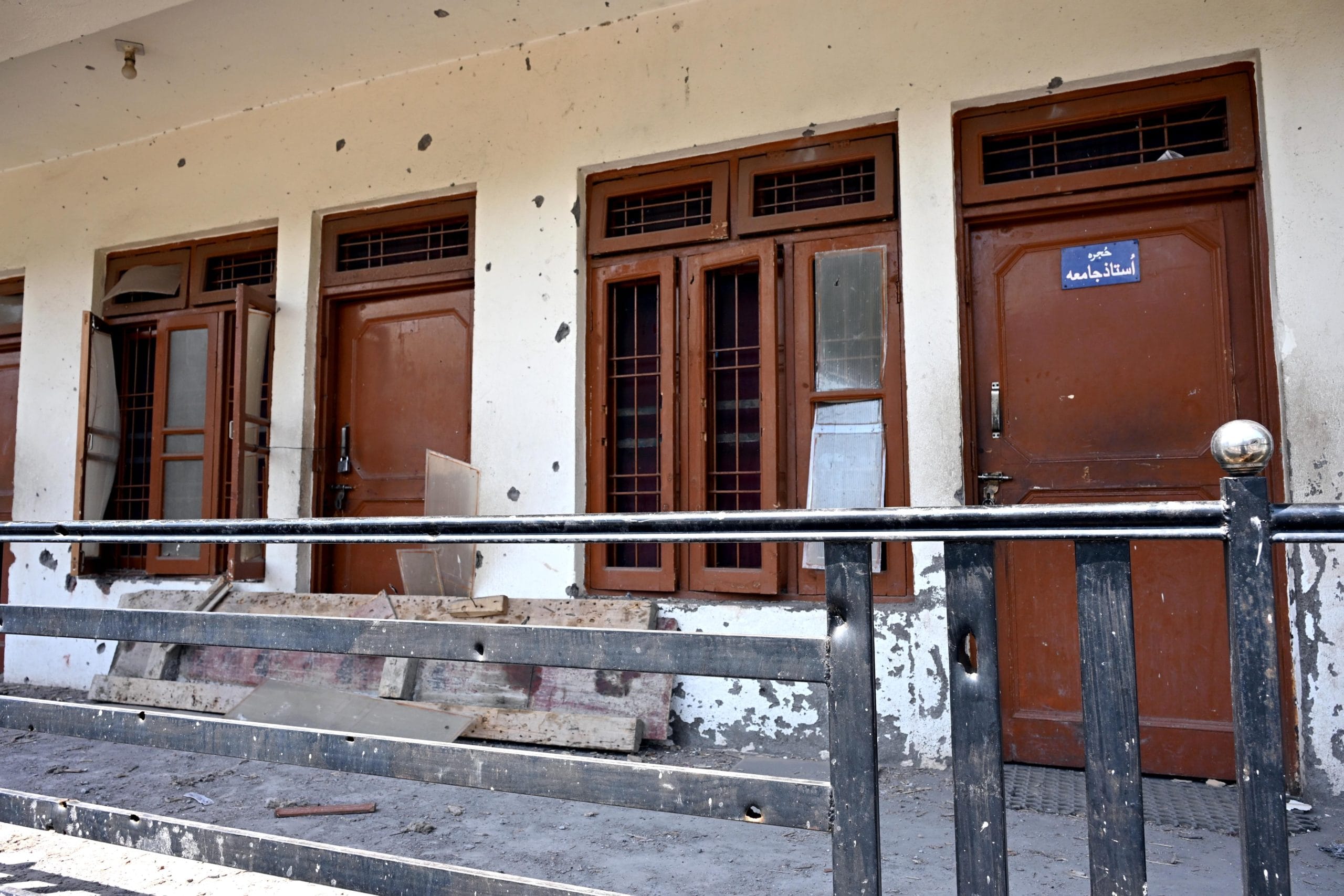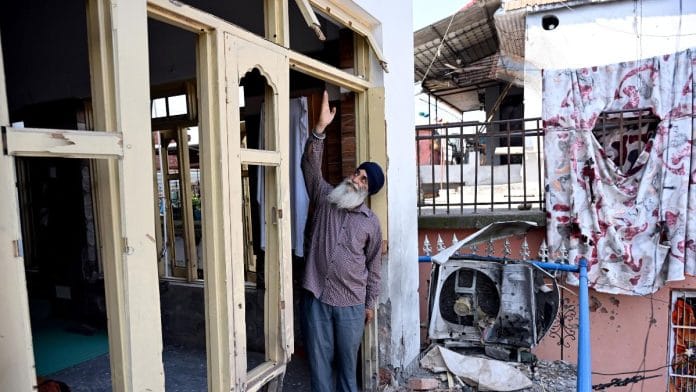Poonch: Sabar Singh, head of the Gurdwara Sahib in Poonch, was locking the doors when a shell tore through the back wall. But before he ran, he grabbed the holy book. The door came off, the windows were shattered, and the back wall turned into rubble.
Splinters flew from all directions into the praying room, yet the spot where the Guru Granth Sahib rested was untouched. “It was all smoke. The shell first hit the edge of the small temple nearby, and then it struck our gurdwara. But by the grace of God, our Guru Granth Sahib was untouched,” said 55-year-old Singh, pointing to the damage.
It was the morning of 7 May. Devotees had just left the gurdwara after morning prayers. This was the first incident of cross-border shelling in Poonch that captured national attention. Even during Ministry of External Affairs (MEA) briefings, Foreign Secretary Vikram Misri mentioned the attack on the gurdwara and the Sikh community at least twice.
But it wasn’t just the gurdwara. A madrasa, a catholic school, and over three dozen homes and vehicles were also damaged in intense shelling by Pakistan. On 6/7 May, Pakistan launched multiple attacks using drones, shells and other munitions along the LoC following the precision strikes carried out by Indian armed forces under Operation Sindoor in retaliation for the 22 April Pahalgam terror attack.
With a ceasefire announced on 11 May, Poonch city stands battered. Many residents—along with visitors and migrant workers who had come to the town—fled to safer locations and have yet to return. Singh and his wife too moved their children and grandchildren to Jammu. But the couple didn’t leave.
“Had we left, who would have taken care of the Guru Granth Sahib?” he says, standing with folded hands.

‘Our time hadn’t come yet’
Balbir Singh and his family of 13—including his mother, three brothers, and their children—were sleeping on the ground floor when they were jolted awake by three loud explosions targeting their home. In the early hours of 9 May, at least three shells struck their three-storey house. One tore through the ceilings of the upper two floors before hitting the ground.
But, no one was injured. Singh attributes their survival to fate, saying, “Our time hadn’t come yet.” Now, a portion of his house lies in rubble.
The few residents who stayed back in Poonch to guard their homes described the intervening night of 8 and 9 May as terrifying. Shelling from the Pakistani side was intense and relentless, damaging over two dozen houses in a single night.
For Singh, the cost of repairing his home will be steep. The workers have left. The town is empty. Most people are biding their time—to be sure that peace has truly prevailed, that there will be no more shelling.
“Who will pay for the renovation now, in this India-Pakistan escalation? Whether through their lives, limbs, or property — it’s civilians who bear the cost. Especially those who live by the border,” Singh says, as his grandmother sits in a corner of the courtyard, mumbling prayers.

A madrasa, a catholic school
Hakim Deen, a chef at the Jamia Zia-ul-Uloom madrasa in Poonch, was cooking lunch for students when he heard a loud explosion. He rushed upstairs and saw a deep crater in the ceiling and ustaad (teacher) Mohammed Qari lying in the debris. He was hit by a splinter. Five children lay unconscious on the desk, few fell on the ground, bleeding.
Everyone at the madrasa quickly gathered and rushed the injured to the hospital. Qari did not survive. The five children are currently under treatment.
“The shell came from there,” Deen says, pointing toward the lush green vale that overlooks the madrasa.
Two kilometres away, a portion of Christ School lies in rubble. The neighbourhood is wrapped in silence. The death of 13-year-old twin siblings on their way to school, and injuries suffered by several students, has driven the entire community to flee. Another kilometre down, a shop has been reduced to debris. Just metres away, a rooftop has collapsed.
Every street, lane, and alley in Poonch carries the scars of conflict. The city is replete with stories of damage to lives, limbs, and property. Though a temporary understanding has been reached to pause hostilities, residents say it will take years to recover from the trauma this conflict has inflicted.

The only sounds piercing the heavy silence wrapping the city is the Poonch river, its violent flow smashing the lull that follows a calamity. A tributary of the Jhelum, the river enters Pakistan through Pakistan-occupied Kashmir. The once-picturesque vale, anointed as ‘Mini Kashmir’, now stands as a silent marker of bloodshed and loss.
“Iss pahadiyon ke peeche se aate hain gole,” someone mutters. The shells, they say, come from behind those hills.
The hills, the silent spectator of the town’s suffering. “Inn wadiyon ne sab dekha hai (These hills have seen all),” says Mohammad Imran, as he leaves for Doda to get his wife and kids back.
(Edited by Amrtansh Arora)
Also Read: In Bhuj, clouds of war brought back 1971 memories. When hundreds of women rebuilt IAF runway by hand






